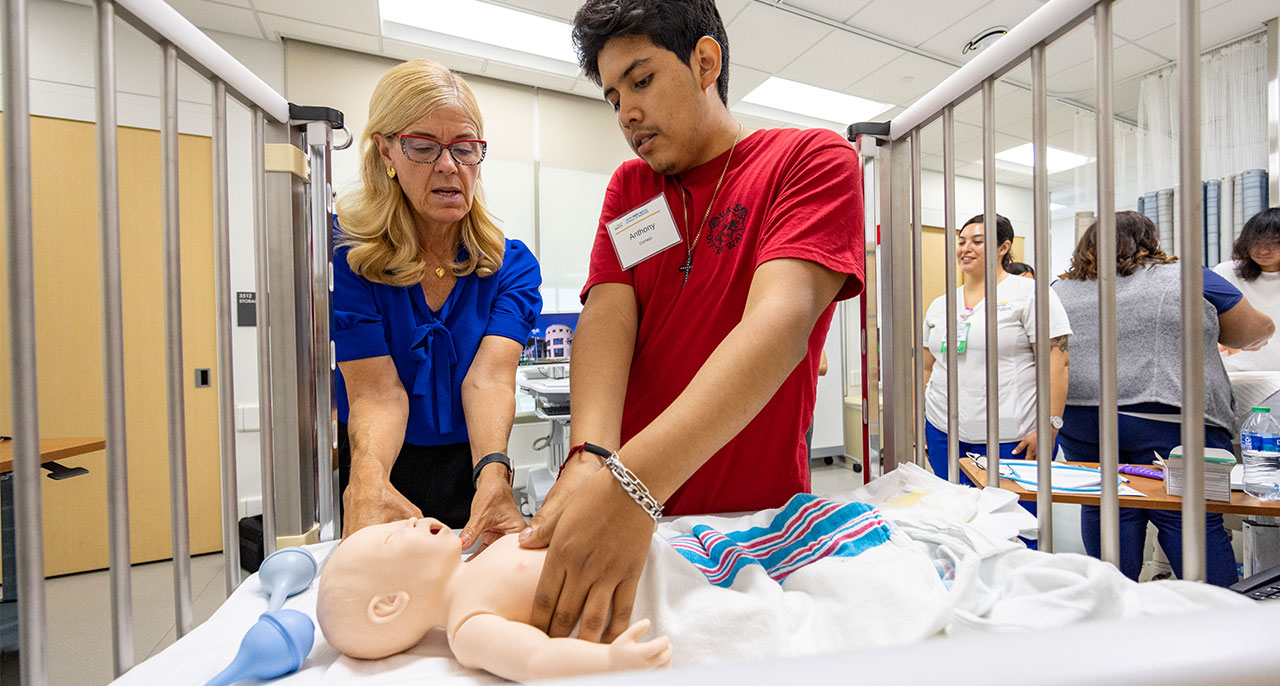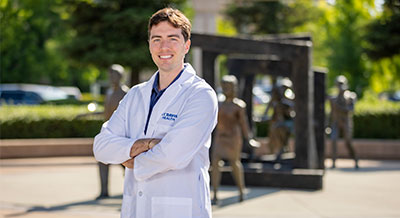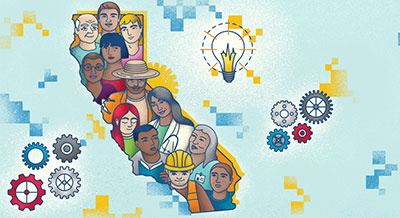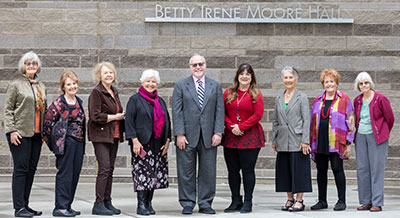Charlie Dharmasukrit guides the educational programs and professional development of nearly 400 nurses at UCSF Health in San Francisco. It’s his passion, and a profession that he was drawn to back in high school.
While attending Lowell High in the Bay Area, he joined the Medical Explorers club. Members heard from health care experts each week. When a nurse researcher presented, Dharmasukrit was hooked.
“She talked about her research on motion-controlled video games and how playing them could promote physical activity for people with mental illness or Parkinson’s disease,” he recalls. “I was sold on the impact that nurses and nursing research can have on health care.”
Dharmasukrit would eventually earn a Doctor of Philosophy (Ph.D.) degree from the Betty Irene Moore School of Nursing at UC Davis in 2019 – the same place he earned a master’s degree in leadership four years earlier. They are accomplishments he says would never have been possible had the seed not been planted when he was younger.
“I think I would have wasted a lot of time,” he says. “Once I entered college, nothing spoke to me like nursing did.”
He believes so much in the ripple effect an early exposure to nursing can have on one’s future that now he invests financially in his alma matter and its Summer Health Institute for Nursing Exploration and Success (SHINES) program.
For two summers, the institute has prepared local high school juniors and seniors, or community college students, from underserved backgrounds to make professional and academic decisions about whether nursing is a right fit for them.
“Part of our mission at the School of Nursing is to attract students who would like to give back to their communities or underserved communities,” explains Piri Ackerman-Barger, associate dean for Health Equity, Diversity and Inclusion and SHINES founder. “The fact that we have such a wonderful group of alumni that continue to live this value as health care professionals means that we are successful in recruiting and educating graduates whose values align with our own.”
Aron King, a UC Davis Health assistant nurse manager and Ph.D. student at the school, also credits his nursing career to exposure in high school. Now he invests his time and experience in growing the participants’ interview skills and illuminating pathways to the profession.
“When I entered nursing school, I didn’t know any nurses or nursing students. I didn’t understand the importance of mentorship until I was preparing to enter graduate school,” King says. “Through SHINES, I have made an extra effort to make myself accessible to students during and after the program. I highlight the importance of mentorship as someone who hadn’t discovered that until later in my career.”
Ackerman-Barger says she could not have taken her dream to reality without the support and investment from School of Nursing alumni like King, Dharmasukrit and many others.
“This program is a condensed package of all my core values for nursing,” says Nicole Vance, a master’s-degree leadership graduate who spent two summers volunteering. “Once you’re in a program there’s support available, but the way nursing is marketed and who is encouraged to be a nurse is a narrower swath of our population. SHINES gets ahead of that narrative and creates a pathway for people we really need in nursing.”
Vance combines her 20 years’ experience as a nurse with her passion for increasing diversity in the nursing workforce when she works with SHINES participants in speed-mentoring sessions.
“Alumni are a critical part of our program because of the value of their health care expertise and their intimate knowledge of the neighborhoods and communities we serve,” Ackerman-Barger adds.
Sheree Criner invests her time because, she says, SHINES offers mentorship and guidance she wishes she’d had in her life.
“Seeing is believing,” says the 2018 alumna. “Representation and role modeling of the best parts of nursing is empowering and inspirational. Sewing into the fabric of the future of nursing is an honor that I’m very proud of, and lets me shine too.”
Criner, along with fellow School of Nursing alumnus Carter Todd, launched the Capitol City Black Nurses Association (CCBNA). The organization serves as the Sacramento chapter of the National Black Nurses Association. They, along with King, secured a grant from the 2022 Health Equity Innovations Fund – aimed at eliminating structural inequities within the nursing profession – to support SHINES.
“The SHINES program fills a void in the journey to becoming professional nurses by steering our young people in the direction early on as young adults,” says Todd, a graduate of the master’s-degree leadership Class of 2018 and current CCBNA president. “Working with our partners at the School of Nursing has allowed for greater impact in the Black community. The program also provides access to the blueprint, or secret sauce, of how to become a successful registered nurse.”
Studies have found that among people of color, having a provider who has empathy, is culturally competent or looks like them is a top priority. Whether donating money and time or leveraging organizations to secure additional funding, the School of Nursing graduates all hope their efforts will amplify the volume and value of diverse voices in nursing.
“It feels revolutionary now, but in the future, programs like this are going to be required,” Vance says. “We have the privilege, because of our proximity to the School of Nursing, to be a part of something that’s really meaningful for the future of nursing.”
“It’s why we went to the school,” Dharmasukrit adds.






